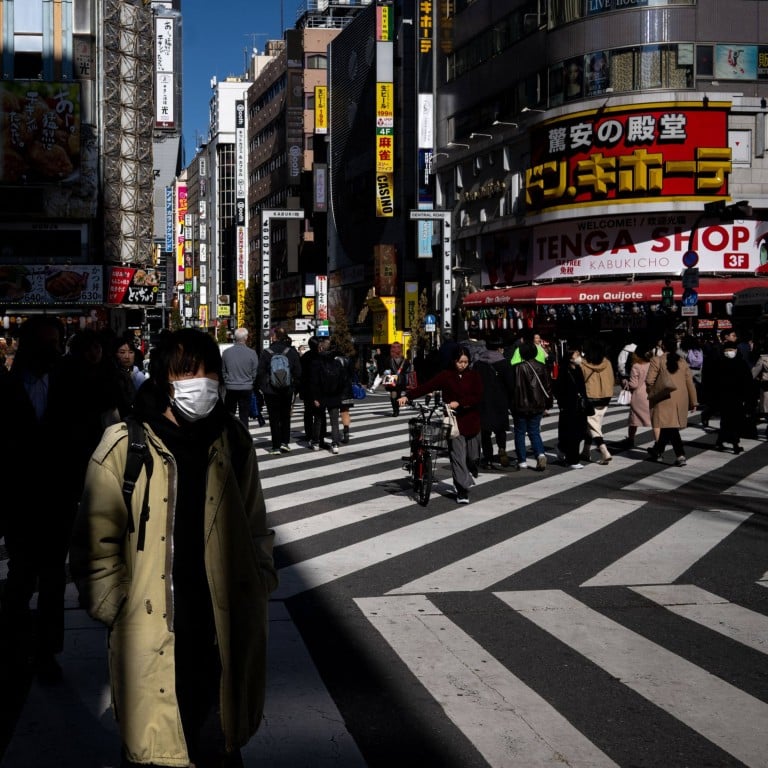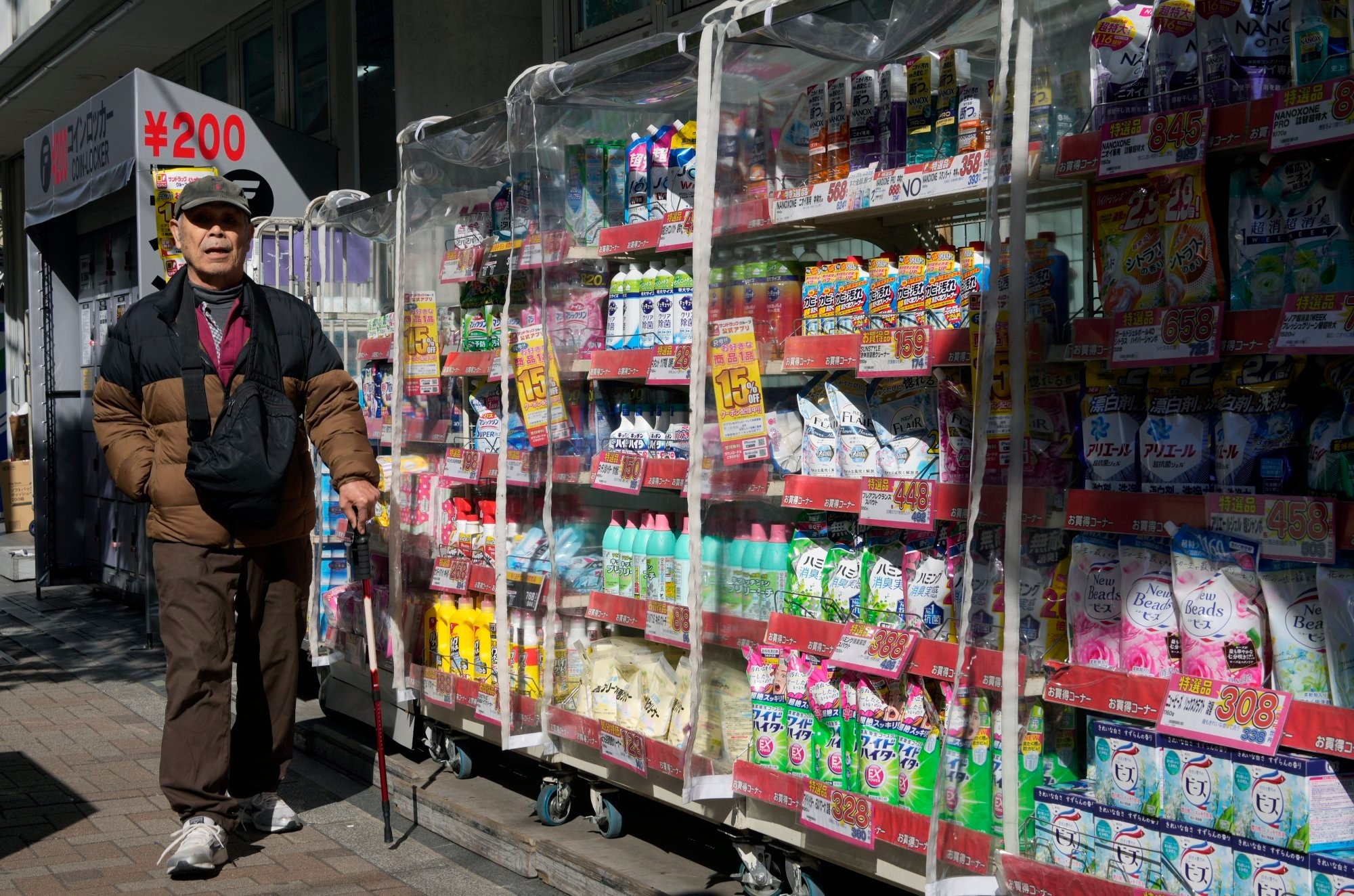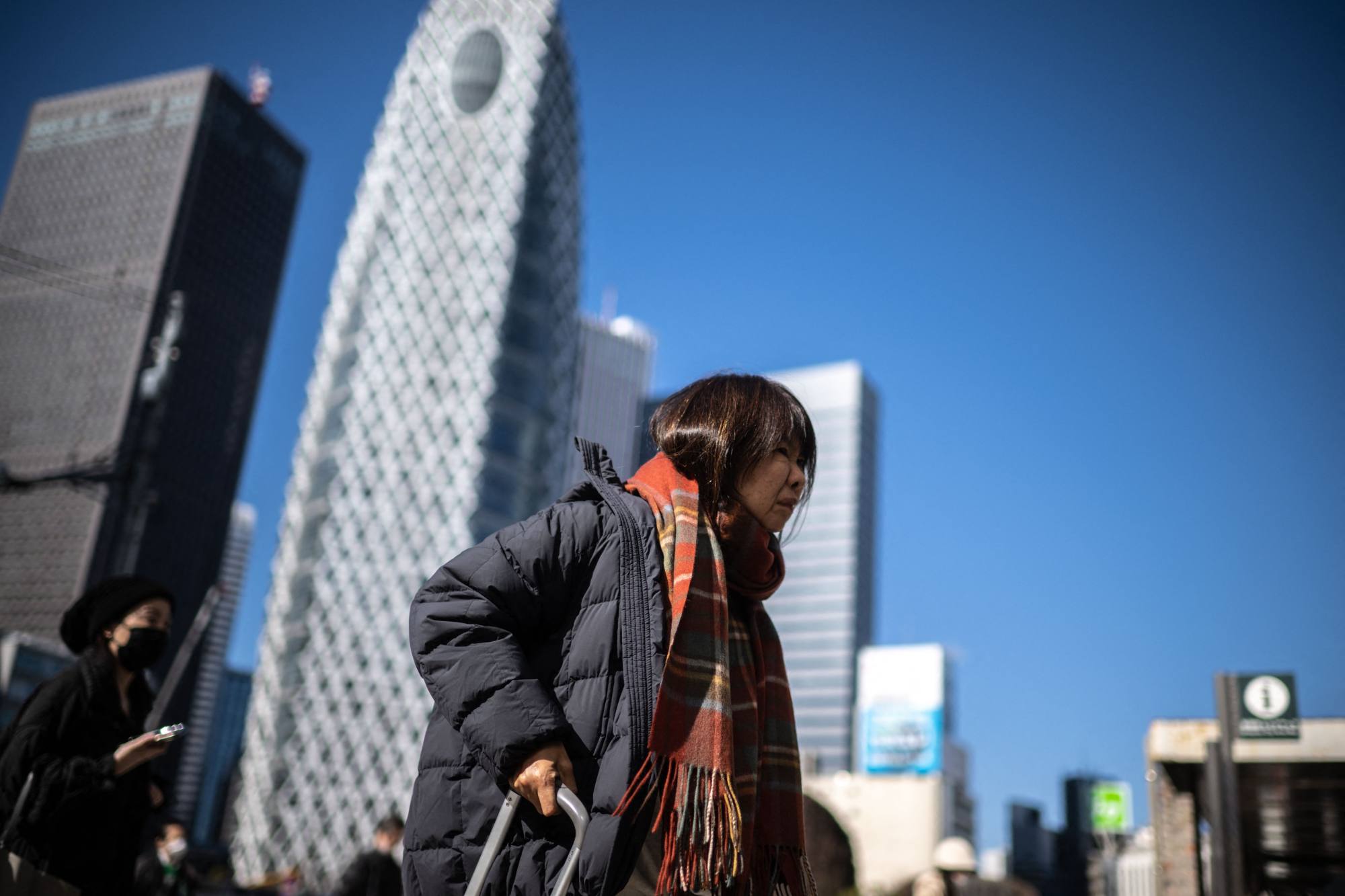
Japan sees ‘golden opportunity’ as it edges closer to ending deflation
- A policy report analysing the state of the economy emphasised sustained wage growth in establishing the foundation for Japan to end deflation
- The government has maintained that Japan is not in a state of deflation, but has yet to officially declare its end
Japan is making progress towards completely overcoming deflation as “positive developments” not seen before in the economy are emerging to support this view, the government said on Tuesday.
The government highlighted several positive signs, including a proactive stance among Japanese firms in passing on higher costs by raising prices, heightened inflation expectations among households and businesses, and strengthening demand, as evidenced by a narrowing output gap.

“A golden opportunity has come to end our fight, which has continued for a quarter century, to depart from deflation,” the report released by the cabinet office said.
“We have to determine if Japan will slip back into deflation by examining economic and price developments from various angles, particularly pay hikes,” it added.
Annual shunto wage negotiations between labour unions and management will shift into full gear towards March after last year saw the fastest pace of pay hikes in three decades.
The cabinet office said the country is still “halfway” through in terms of realising nominal wage growth outpacing inflation. The country’s wages have been falling for nearly two years when adjusted for inflation.
The government has maintained that Japan is not in a state of deflation, but has yet to officially declare its end.

After higher import costs pushed up the nation’s inflation, which has consistently remained above the BOJ’s 2 per cent target for well over a year, Japan has entered a “different phase”, the report said.
It noted price hikes are broadening in the services sector, a positive development in Japan’s fight against deflation, given that service providers tend to adjust prices slowly to reflect labour costs.
The report came as the BOJ grows more confident about the possibility of its inflation target being achieved in a stable and sustainable manner, accompanied by wage growth.
The International Monetary Fund last week urged the BOJ to consider winding down its monetary easing and gradually raising interest rates amid market expectations that the central bank will scrap its negative rate policy this spring, at the earliest.
Robust wage growth is “extremely important” for Japan if private consumption, which has been hit by rising prices, is to make a sustained recovery as domestic demand has lacked strength, the government said.
‘It is serious’: over 1 in 4 Japanese old enough to retire as population shrinks
In addition to pay hikes, labour market reforms are among the challenges facing the rapidly greying nation.
While more women have entered the workforce over the years, they have faced hurdles, including “income barriers”. If they earn beyond the threshold, they have to start paying income tax or social insurance premiums, in a system widely seen as discouraging some people from working long hours.
In Japan, the percentage of women working between 20 and 29 hours a week is higher than in other advanced economies like the United States, Britain and Germany, partly because they adjust their work hours to avoid crossing the income thresholds.
Around 2.7 million people can work longer hours than now, about half of them female part-time workers, but they have not done so, citing limitations under the existing social security system and other reasons, according to the report. Japan’s workforce is around 68 million.
“It is important to create a system that will not hamper incentives to increase working hours,” it added.

